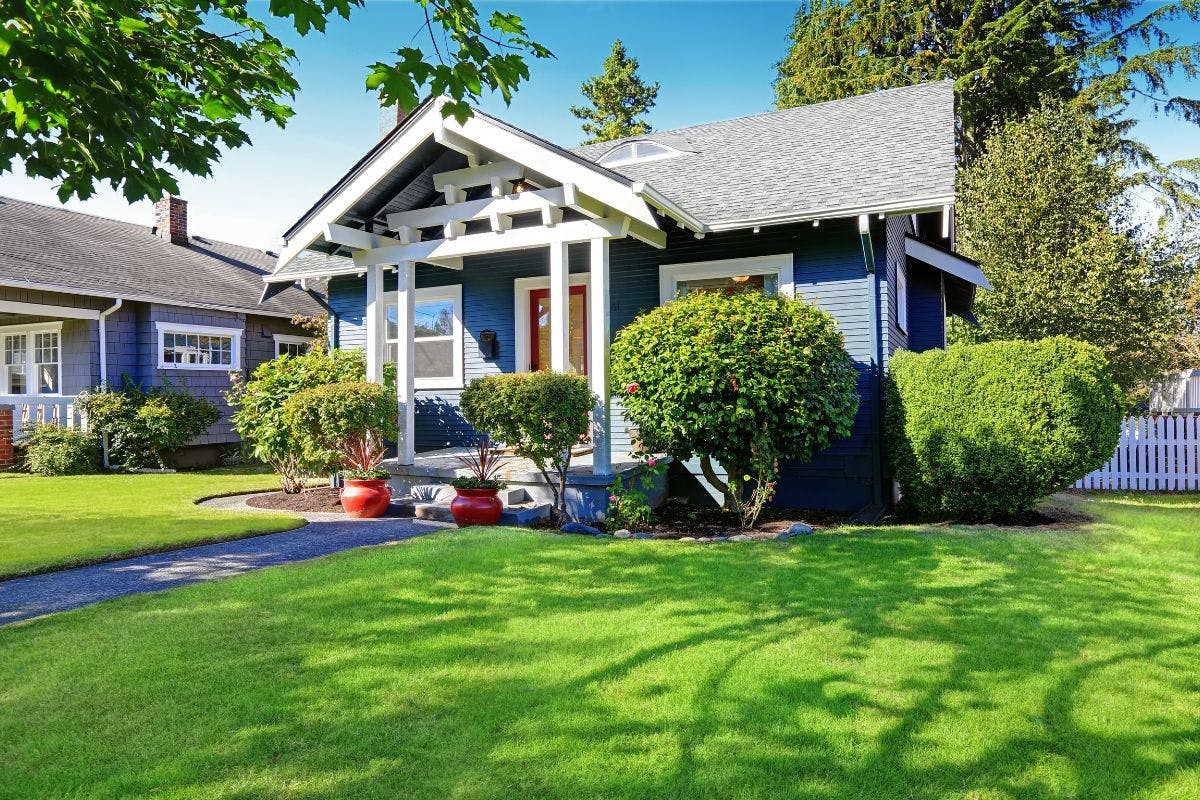Home Solar Feasibility Checklist
Last edited

Author
Andrew Giermak
Solar and Electrification Writer and Editor

Editor
Andrew Blok
Electrification and Solar Writer and Editor

You’ve thought about solar panels. You’ve seen them on other homes or buildings. You’ve also been seeing your utility bills going up. How do you figure out if your home will work with home solar panels?
You don’t need to find those answers on your own, but there are some easy things you can check to get a good idea and learn more about savings you’re likely to get with solar energy. Along with reaching out to a professional solar company, you can do your own solar feasibility check to see how your home is probably a great one for solar.
See how much you can save by going solar with Palmetto
Your Roof Has Enough Space to Install Solar Panels
First and foremost, if you want to install solar, you will need somewhere to put it. The amount of roof space needed for solar varies by system size and the number of panels you need, which depends on factors such as your energy usage, efficiency, roof orientation, shading, climate, budget, and if you’re installing battery backup. For instance, if you plan to install 20 panels to match your home’s electricity consumption (fairly average in the US), you would need approximately 300 square feet of usable space on your roof.
Your Roof Receives Direct Sunlight Most of the Day
The key component to determine if solar panels are suitable for your roof is sunlight. More specifically, how much sunlight your installation space receives each day. In the Northern Hemisphere, southern-facing roofs are ideal for solar panels, but both east and west-facing roofs can also receive ample peak sun hours. In addition to facing the sun, typically angled at your latitude to the equator, your panels must be installed in an area free of major shade obstructions such as trees, chimneys, or neighboring buildings.
You Will Save Money
If you plan to pay in cash for your solar energy system, then by all means, cash is king, and an outright purchase is a great way to buy solar.
However, if you are one of the vast majority of solar buyers who would prefer not to pay for 25 years of electricity production in one transaction, then you can likely go with a loan, a solar lease, or a solar power purchase agreement. There are pros and cons with all solar financing arrangements. Ensure that your solar payback period and savings estimates make sense for you.
Your Utility’s Policies Work With You
The majority of people who go solar install their system as a grid-tied solar energy system. It’s connected to the utility company’s electricity grid. Very few solar owners are living off the grid.
When rooftop panels generate electricity, the utility will transmit any excess energy you don’t use at home, or send to battery storage, and share it with other utility users.
Within a net metering or net billing agreement, the utility company will compensate you for this excess power shared in the form of an electricity bill credit, so you save on the grid power you use. Utilities have net energy metering plans in 34 US states and territories.
See how much you can save by going solar with Palmetto
You Qualify for the Federal Tax Credit (If You’re Buying)
The Residential Clean Energy Credit can reduce your overall investment in a solar energy system by up to 30% of the total project costs. However, it’s important to know the Clean Energy Credit is redeemed as a federal income tax credit, not a rebate. Therefore, the solar tax credit is only of value to those who possess a federal tax liability, and while qualifying for the credit isn’t necessary to go solar, it certainly helps financially.
The recently signed One Big Beautiful Bill Act dramatically shortened the deadline for the Residential Clean Energy Credit, the Energy Efficient Home Improvement Credit from 2034 to Dec. 31, 2025.
You Are Projected to Cut Energy Costs
Zooming in on the main problem solar energy solves (aside from the environmental reasons to use solar power), homeowners primarily install solar panels to save on electric bills. With the assistance of a solar professional, or using a tool like Palmetto’s solar savings calculator, you can estimate your future energy savings based on your projected solar generation and utility expenses avoided.
Your Roof Is New or Ready for Replacement
Although this idea is not 100% necessary, having a relatively new or very old roof may make now the perfect time to go solar. As both solar panels and residential roofs have long expected lifetimes (25 years or more), most experts agree doing the two projects together can make a roof replacement the best decision for your budget and long-term benefits.
You Trust Your Solar Advisor
We believe the number one thing you need before you go solar is to trust the person handling your installation. Home solar power is a multi-decade commitment. You’re right to have questions and want expert answers. Therefore, you should strive to find a company with a reputation for excellent services and a high likelihood to remain in business throughout the long lifetime of your renewable energy system.
Use our solar savings calculator to estimate your savings today..
See what solar can do for you:
Frequently Asked Questions
Is solar worth it?
For most people, in most cases, home solar power is worth it as far as saving money, using clean energy, having energy independence, and helping the environment. Each homeowner should look at factors such as their energy usage, energy bills, property, roof, incentives and tax credits, solar companies to work with, and future plans.
Do you need a new roof to go solar?
No, any roof in good condition is perfectly compatible with solar panels. If your roof is very old or damaged, then a new or renovated roof would be needed.
How do you know if your home works for solar?
The best way to know if your home will work is to contact a reputable professional solar company. An expert can answer all your questions and walk you through how solar power could work great for your home.


